#Healthcare interoperability
Explore tagged Tumblr posts
Text

A Updated Guide to Healthcare Informatics Software
The current state of healthcare is characterized by an ongoing data flood and an increasing focus on digital effectiveness. A key component of this revolution is healthcare informatics software, which gives clinicians the means to improve patient care, streamline processes, and glean insightful information from enormous medical databases. For healthcare workers at every stage of their employment, this thorough reference is a useful resource.
#mHealth app#Healthcare information technology#healthcare software development#Healthcare’s EHR Interoperability#healthcare interoperability#electronic health records#Healthcare Informatics Software
0 notes
Text
2 notes
·
View notes
Text
https://www.clindcast.com/
#healthcare#healthcareconsulting#florida#healthcare it consulting#healthcareit#fhir#interoperability#ehr#electronic health record
3 notes
·
View notes
Text
Healthcare on the Blockchain: Boosting Privacy, Security, and Patient Outcomes
Introduction: A New Prescription for Healthcare Innovation
In today’s digital age, healthcare systems face growing challenges—ranging from frequent data breaches to fragmented patient records. Enter blockchain technology, a game-changer that promises not just stronger data security, but also improved patient outcomes. With the help of a trusted Blockchain Development Company, healthcare providers can harness this powerful innovation to create secure, transparent, and efficient systems.
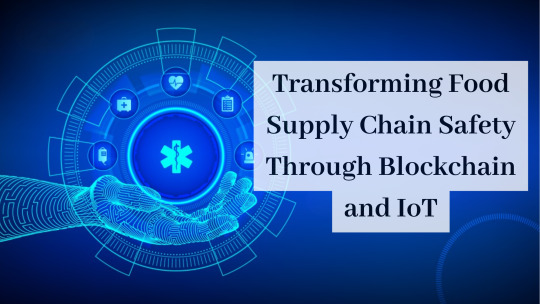
What is Blockchain and Why It Matters in Healthcare
Blockchain is a decentralized ledger technology known for its immutability, transparency, and security. Unlike traditional databases, it doesn’t rely on a single centralized server, which means healthcare data can be securely shared and stored without the risk of tampering. A skilled Blockchain Development Agency can tailor this technology to fit the sensitive demands of modern healthcare systems.
Current Pain Points in the Healthcare System
Data breaches compromising patient privacy
Siloed and inaccessible health records
Administrative inefficiencies and rising costs
Trust deficits between patients and providers
How Blockchain Development Services Are Reshaping Healthcare
1. Electronic Health Records (EHRs)
Blockchain allows patients to control their medical data, granting permission to doctors or hospitals as needed. Blockchain development services are enabling healthcare systems to build interoperable EHR platforms that ensure data integrity and privacy.
2. Data Privacy & Regulatory Compliance
Blockchain's encryption and decentralized structure ensure compliance with HIPAA, GDPR, and other regulations.
3. Supply Chain Transparency
From pharmaceutical tracking to cold chain logistics, blockchain ensures product authenticity, reducing fraud in healthcare supply chains.
4. Clinical Research & Trials
Smart contracts help maintain transparency and auditability in clinical trials, boosting public trust.
5. Insurance Claims & Billing
With blockchain automation via smart contracts, claim settlements become faster and fraud-resistant.
Benefits of Blockchain in Healthcare
Enhanced data security and privacy
Reduced administrative costs
Improved patient engagement and trust
Real-time access to accurate medical records
Fraud prevention in healthcare billing
Success Stories: Real-World Blockchain Healthcare Projects
Examples include:
Estonia’s national EHR system powered by blockchain
MediLedger for pharmaceutical supply chain
BurstIQ for health data marketplaces
These success stories were made possible by top-tier blockchain development companies with deep healthcare expertise.
Barriers to Adoption
Technical integration with legacy systems
Limited awareness among stakeholders
Uncertain legal and regulatory frameworks
Scalability and cost considerations
What the Future Holds: Blockchain, AI & IoT in Healthcare
The fusion of blockchain with AI and IoT opens doors to predictive diagnostics, remote monitoring, and fully secure digital health ecosystems. Partnering with a visionary blockchain development company will be key to staying ahead in this rapidly evolving space.
Conclusion: The Time to Act is Now
Blockchain isn’t just a buzzword—it’s the foundation for the next generation of secure, efficient, and patient-focused healthcare. As healthcare organizations move toward digitization, collaborating with an expert blockchain development agency can pave the way for a future where privacy, efficiency, and innovation walk hand in hand.
#Blockchain in Healthcare#Healthcare Blockchain Solutions#Blockchain Development Company#Blockchain Development Services#Blockchain Development Agency#Electronic Health Records Blockchain#Healthcare Data Security#Medical Blockchain Applications#HIPAA Blockchain Compliance#Smart Contracts in Healthcare#Future of Healthcare Technology#Blockchain and Patient Care#Medical Data Interoperability
0 notes
Text
What Is Healthcare Interoperability and Why Does It Matter?

In today’s increasingly digital healthcare landscape, interoperability is more than just a buzzword—it’s a cornerstone of modern, efficient, patient-centered care. But what exactly is healthcare interoperability, and why is it so vital to the future of healthcare?
Let’s break it down in simple terms.
Defining Healthcare Interoperability
At its core, healthcare interoperability is the ability of different health information systems and software applications to communicate, exchange, and use data effectively across organizational, geographic, and technological boundaries.
In practical terms, it means that a hospital's electronic health record (EHR) system can seamlessly and securely share patient data with a specialist’s clinic, a pharmacy, or even a mobile health app.
Why Does It Matter?
🏥 Better Patient Care
When healthcare providers have access to up-to-date and complete patient information, they can make more accurate diagnoses, avoid duplicate testing, and offer better treatment recommendations. Interoperability helps create a holistic view of a patient’s health.
🔁 Fewer Repetitions & Errors
Imagine visiting a new doctor and not having to fill out the same forms or retake the same tests. With interoperable systems, data travels with the patient, cutting down on administrative errors and unnecessary delays.
💰 Reduced Healthcare Costs
By eliminating data silos and duplicate procedures, interoperability can significantly reduce operational and clinical costs—benefiting both providers and patients.
📊 Improved Public Health & Research
When anonymized patient data is shared securely and ethically, it can be used to spot public health trends, support clinical research, and improve healthcare delivery on a national or even global scale.
What Are the Challenges?
Despite its benefits, achieving full interoperability isn't easy. Some common roadblocks include:
Lack of standardization across platforms and vendors
Data privacy and security concerns
Resistance to change or legacy systems
Regulatory complexities
That’s where organizations like Hale HIT Labs come in—providing expertise in developing secure, interoperable systems that help providers comply with regulations while improving patient outcomes.
How Interoperability Empowers Patients
Patients also gain more control over their healthcare through interoperability. With access to their own records via portals and apps, they can track their history, understand their treatments, and make more informed decisions. It also supports the rise of virtual care and personalized medicine.
The Bottom Line
Healthcare interoperability is about making data work for everyone—from providers to patients to researchers. It connects the dots, breaks down barriers, and builds a foundation for smarter, more efficient, and more compassionate care.
As digital health grows, interoperability isn’t just a tech goal—it’s a healthcare necessity.
0 notes
Text
What is Cloud Computing in Healthcare?

Cloud computing for the healthcare industry is the way of implementing remote server access through the internet for storing, managing, and processing healthcare data. In this process, on-site data centers aren’t established for hosting data on personal computers and hence provides a flexible solution for healthcare stakeholders to remotely access servers where the data is hosted.
Shifting to the cloud has two-fold benefits for both patients and providers. On the business side, virtualization in cloud computing has been beneficial to lower the operational spend while enabling healthcare providers to deliver high-quality and personalized care.
The patients, on the other hand, are getting accustomed with fast delivery of the healthcare services. Healthcare cloud computing increases involvement of patients by giving them access to their healthcare data, which ultimately results in better patient outcomes.
The remote accessibility of healthcare added with the democratization of data free the providers and patients which breaks down the location barriers to healthcare access.
What are the Benefits of Cloud Computing in the Healthcare Industry?

Cost-effective solution:The primary premise of healthcare cloud services is real time availability of computer resources such as data storage and computing power. Both healthcare providers and hospitals don’t need to buy data storage hardware and software. Moreover, there are no upfront charges linked with the cloud for healthcare, they will only have to pay for the resource they actually use. Applications of cloud computing in healthcare provides an optimum environment for scaling without paying much. With the patient’s data coming from not only EMRs but also through healthcare apps and wearables, a cloud environment makes it possible to scale the storage while keeping the costs low.
Easy interoperability: Interoperability is establishing data integrations through the entire healthcare system, regardless of the origin or where the data is stored. Interoperability powered by healthcare cloud solutions, makes patients’ data available to easily distribute and get insights to aid healthcare delivery. Healthcare cloud computing enables healthcare providers in gaining access to patient data gathered from multiple sources, share it with key stakeholders and deliver timely protocols.
Ownership of data by patients:The combination of cloud computing and healthcare democratize data and give the patients control over their health. It increases participation of patients in decisions related to their health, working as a tool to better patient involvement and education. The importance of cloud computing in the industry can also be seen by the fact that the medical data can be archived and then retrieved easily when the data is stored on the cloud. With an increase in the system uptime, the redundant data reduces to a huge extent, and the data recovery also becomes easier.
Improved collaboration:The implementation of cloud for healthcare has a major role in boosting collaboration. By storing the Electronic Medical Records in the cloud, patients don’t need to have separate medical records for every doctor visit. The doctors can easily view the information, see the outcome of previous interactions with the specialists, and even share information with each other. This saves their time and enables them to provide more accurate treatment.
Enhanced patient experience:With the help of cloud for healthcare, doctors have now the power to increase the patient involvement by giving them anytime access anywhere to medical data, test results, and even doctors’ notes. This gives the patients control over their health as they become more educated regarding their medical conditions. In addition to this, cloud computing in healthcare provides a check for the patients from being overprescribed or dragged into unnecessary testing as doctors can find in the medical records.
Click the link below to learn more about the blog What is Cloud Computing in Healthcare? https://tudip.com/blog-post/what-is-cloud-computing-in-healthcare/
#tudip.com#tudip#cloud computing in healthcare#healthcare cloud solutions#benefits of cloud computing in healthcare#healthcare data storage cloud#cloud healthcare applications#cloud-based EMR solutions#healthcare IT cloud infrastructure#patient data cloud access#cloud computing for hospitals#healthcare data interoperability#remote healthcare data access#cloud for electronic medical records#cloud-based patient records#scalable healthcare cloud#healthcare virtualization cloud#medical data in the cloud#cloud healthcare collaboration#digital health cloud platforms#cost-effective healthcare cloud#HIPAA compliant cloud solutions#cloud computing in medical industry#healthcare cloud integration#cloud computing benefits for patients
0 notes
Text

SUBMIT YOUR ABSTRACT Track 8: Change Management, Track 9: Health Information You're invited to the CE/CME/CPD accredited 15th American Healthcare Summit, happening May 14-16, 2025, in San Francisco! Share your innovative research and solutions on cybersecurity in healthcare and patient safety. Submission deadline: April 15th, 2025 Submit your abstract here: https://healthcare.utilitarianconferences.com/submit-abstract
#Healthcare#ChangeManagement#Leadership#Innovation#Strategy#DigitalHealth#Transformation#HealthTech#EHR#DataSecurity#Interoperability#HealthIT#PatientCare#QualityImprovement#Analytics
0 notes
Text
How I Made Patient Data Access Instant with the Right Electronic Medical Records Software
Managing a clinic is not easy. Between treating patients, handling billing, and keeping up with paperwork, it can feel overwhelming. One of my biggest struggles was finding patient records quickly. Searching through files or switching between systems took a lot of time. I wanted a better way to manage everything. That’s when I found the right **electronic medical records software** and it completely changed how my clinic worked.
The Problem with Paper Records and Outdated Systems
Before using electronic medical records software, we used a mix of paper files and an old computer system. It was messy. Sometimes, files would be in the wrong place. Other times, the system would crash or take too long to load, causing delays and making patients wait longer.
It wasn’t just about being slow. Having to dig through files also meant we missed small but important details in a patient’s history. These delays affected our workflow and sometimes made patients feel we weren’t well organized.
Choosing the Right Software for My Clinic
I knew I needed a better system. But I didn’t want something complicated or expensive. I needed something:
Easy for my team to use
Fast when searching for patient data
Safe and secure for storing personal information
Affordable for a small clinic like mine
That’s when I started looking into modern electronic medical records software. After trying a few options, I found one that was just right.
How the Software Improved Patient Data Access
Once we set up the new software, the changes were clear from day one.
Simple Dashboard for Quick Search
The dashboard made it very easy to find patient records. We could search by name, phone number, or date of birth and get results in seconds. No more flipping through papers or waiting for slow systems.
Updated Patient Info in One Click
Whenever a patient visited, we could quickly check their past appointments, prescriptions, test results, and notes. Everything was available in one place.
Easy to Share Within the Clinic
If I was busy with another patient, my assistant could access the same records without delay. Everyone was on the same page, and this helped the entire team work better.
Extra Features That Helped
The electronic medical records software came with other features that made our daily work smoother:
Automatic appointment reminders for patients
Online billing and easy payment tracking
Space to upload reports, x-rays, and notes
Backup options so we never lost data
All these features saved us time and reduced stress for both staff and patients.
My Patients Noticed the Difference
Patients started commenting on how smooth their visits felt. They didn’t have to repeat information. Follow-ups were faster. Reports were ready when they arrived. They felt more cared for—and that’s what really mattered.
Conclusion
Making the switch to electronic medical records software was one of the best decisions I made for my clinic. It saved time, improved patient care, and helped my team stay more organized. If you’re running a clinic or practice and are still using paper files or an outdated system, now is the right time to consider a better solution.
Call to Action
Are you tired of digging through files and wasting time on old systems? Try switching to electronic medical records software and see how fast and simple your clinic can become. It’s a step that helps both your team and your patients every day.
#electronic health record systems#fast healthcare interoperability resources#electronic medical records software
0 notes
Text
U.S. Healthcare Interoperability Solutions Market Size 2025-33
United States healthcare interoperability solutions market size reached USD 1,034.5 Million in 2024. Looking forward, IMARC Group expects the market to reach USD 2,735.6 Million by 2033, exhibiting a growth rate (CAGR) of 11.1% during 2025-2033. The growing utilization of big data analytics and machine learning (ML) in healthcare, rising focus on patient-centric care and the need for improved care coordination, and increasing employment by public health agencies to monitor health trends and manage outbreak represent some of the key factors driving the market.
0 notes
Text
What is Interoperability in Healthcare? Importance and Challenges in 2025
Interoperability is transforming healthcare in 2025, enabling seamless data exchange across systems. But what exactly is interoperability, and why is it crucial for improving patient outcomes? This article delves into the definition of interoperability in healthcare, explores its importance, and tackles the key challenges organizations face when implementing interoperable solutions.
Learn how overcoming these hurdles can revolutionize care delivery, enhance collaboration, and optimize efficiency.
#what is interoperability in healthcare#challenges of interoperability in healthcare#why is interoperability important in healthcares#ati nursing school
0 notes
Text
Lack of Data Standards Hurts Healthcare Interoperability
In healthcare, the absence of universal data standards is a major obstacle to seamless interoperability. When systems can't "talk" to each other, vital patient information is lost, duplicated, or delayed. This not only hampers coordinated care but also increases costs and risks for providers and patients alike. To unlock the true potential of healthcare technology, we need standardized frameworks that ensure data can flow effortlessly across platforms, improving decision-making, reducing errors, and enhancing patient outcomes. It's time to prioritize interoperability for a connected, efficient healthcare system.
0 notes
Text

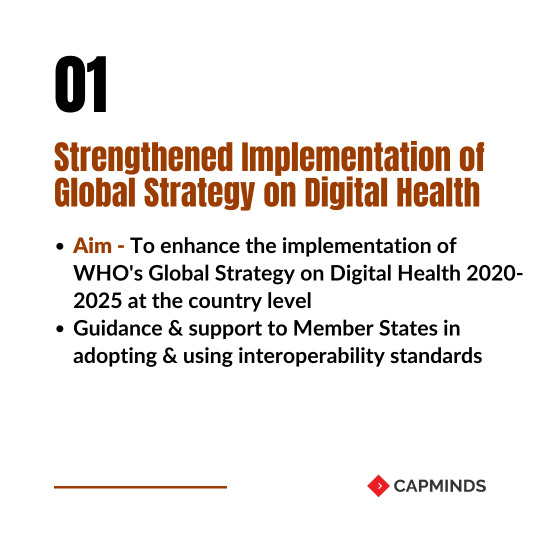
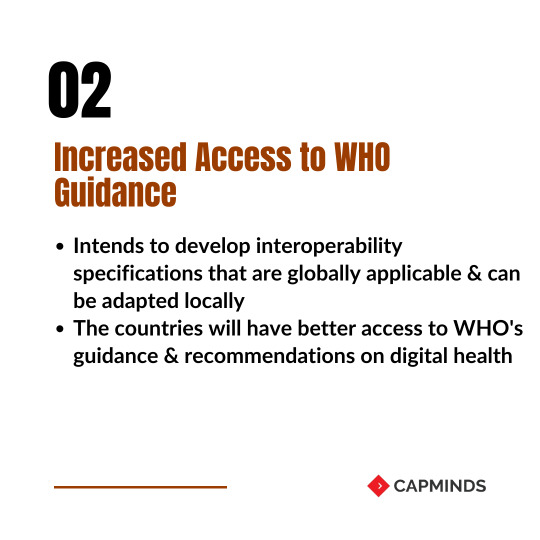
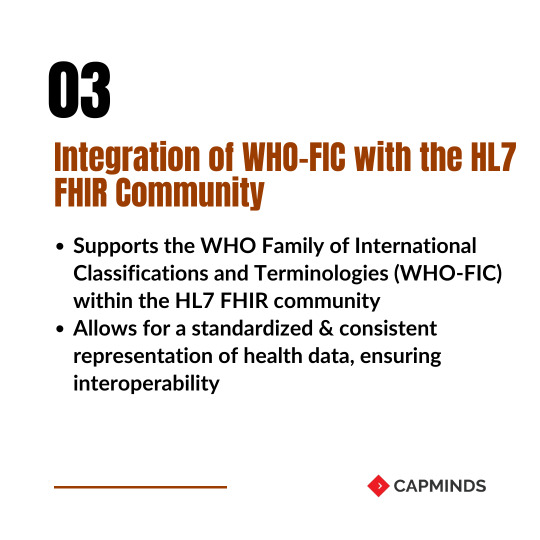
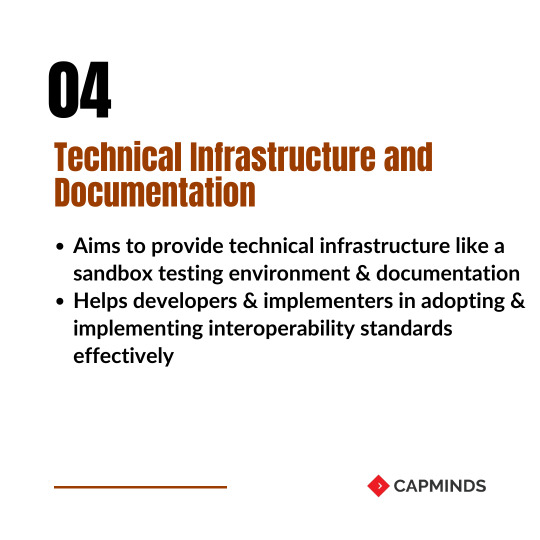
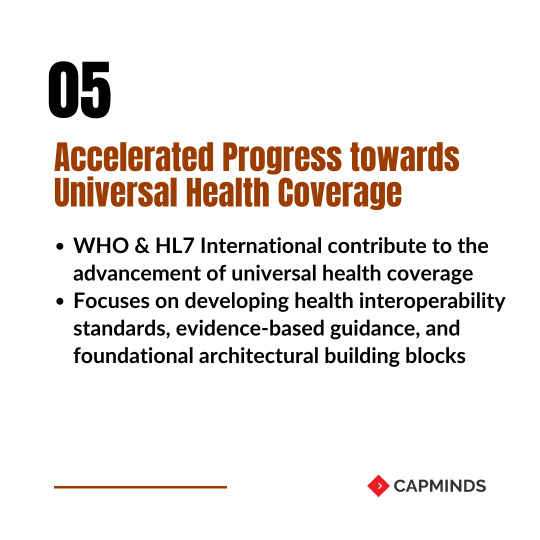

The collaboration between WHO and HL7 International brings together their respective expertise and resources to drive the adoption and appropriate use of interoperability standards globally.
This collaboration has the potential to harmonize digital health systems, improve data exchange and continuity of care, and contribute to the overall goal of achieving universal health coverage.
2 notes
·
View notes
Text
What is Interoperability in Healthcare and Why is it Important?
In the US healthcare industry, seamless transmission and communication of patient information have gained importance since the IT channels have improved and increased in number. The support offered is to eliminate organizational challenges related to data flow and interoperability in healthcare. The rising number of channels and mechanisms of data interoperability is leading to better patient outcomes.

0 notes
Link
#digitalhealth#healthcare#healthtech#technology#innovation#healthcareindustry#medicaltechnology#ehealth#mhealth#telemedicine#ehr#interoperability#patientengagement#vir...
0 notes
Text

SUBMIT YOUR ABSTRACT Track 8: Change Management, Track 9: Health Information Be part of the CE/CME/CPD accredited 15th American Healthcare, Hospital Management, Nursing, and Patient Safety Summit, scheduled for May 14-16, 2025, in San Francisco, USA. Present your innovative research and practical solutions that explore the critical nexus of cybersecurity in healthcare and patient safety. Submission deadline: April 15th, 2025 Submit your abstract here: https://healthcare.utilitarianconferences.com/submit-abstract
#Healthcare#ChangeManagement#HealthInformation#HealthcareIT#DigitalHealth#EHR#HealthTech#MedicalInformatics#HealthcareInnovation#HealthData#Interoperability#HealthAnalytics#HealthPolicy#HealthcareTransformation#ClinicalInformatics#DataSecurity
0 notes
Text
Where to Find the Most Reliable Electronic Health Record Systems for Small Clinics
Running a small clinic comes with many responsibilities. One of the most important parts of managing a clinic is keeping patient records safe, updated, and easy to access. This is where electronic health record systems (EHR systems) play a big role.
Small clinics need systems that are not only easy to use but also helpful in managing patient care, billing, and follow-ups. In this blog, let’s look at where you can find the right electronic health record systems that work well for small clinics.
Why Electronic Health Record Systems Are Important for Small Clinics
Keeping paper records is time-consuming and risky. Files can be misplaced, damaged, or lost. Electronic health record systems make it simple to keep everything in one place. These systems help doctors and clinic staff:
Save time by quickly pulling up patient history
Reduce paperwork and manual errors
Keep patient data safe and secure
Improve communication within the clinic
Make billing and insurance processes smoother
For small clinics with fewer staff members, having a digital system saves both time and effort.
What to Look for in an Electronic Health Record System
Not all systems are the same. Some are made for big hospitals and may be too complex for small clinics. When choosing an electronic health record system, it’s important to check the following:
Easy to Use
The system should be simple to understand and easy for everyone on your team to use—even those who are not very tech-savvy.
Affordable
Small clinics often have limited budgets. Choose a system that offers good features at a price you can afford.
Cloud-Based Option
Cloud-based systems let you access data from anywhere. This is great if you want to check records from home or another location.
Good Customer Support
You may need help setting up or using the system. Make sure the company provides help when you need it.
Secure
Patient data is private and sensitive. Choose a system with strong data protection and privacy settings.
Best Places to Find Good Electronic Health Record Systems
Search Online
Many EHR providers have websites that show what their system can do. Look for systems that mention support for small clinics.
Read Reviews from Other Clinics
Reading what other small clinics say can help you understand which systems are easy to use and helpful in real situations.
Ask Other Clinic Owners
If you know someone who runs a clinic, ask them which system they use. Their experience can guide you in choosing the right one.
Try a Free Demo
Some companies offer free trials. You can try the system before paying for it. This gives you a better idea of how it works and whether it’s right for your clinic.
Services That Come with EHR Systems
Some electronic health record systems offer extra features that can help your clinic run better:
Appointment booking
Billing and insurance claim tools
Automatic reminders for patients
Reports and analytics to help track clinic performance
Integration with lab reports or prescriptions
These added features save time and allow doctors to focus more on patient care.
Conclusion
Electronic health record systems have become a must-have for small clinics. They help reduce paperwork, improve patient care, and make day-to-day tasks easier for everyone in the clinic. While there are many options out there, it’s best to choose a system that is simple, affordable, and built for smaller healthcare setups.
Call to Action
If you run a small clinic and are still using paper records, now is the perfect time to move to electronic health record systems. Look for a system that suits your clinic’s size and needs. A good EHR system will save you time, cut down on errors, and help you give better care to your patients every day.
#electronic health record systems#fast healthcare interoperability resources#electronic medical records software
0 notes